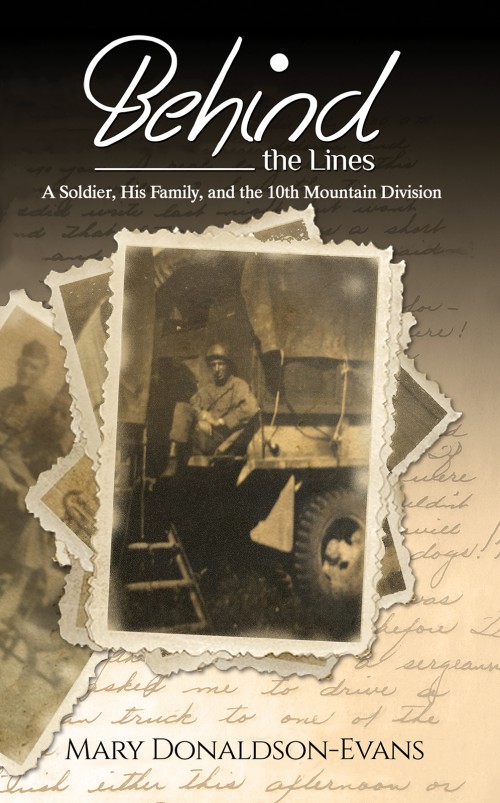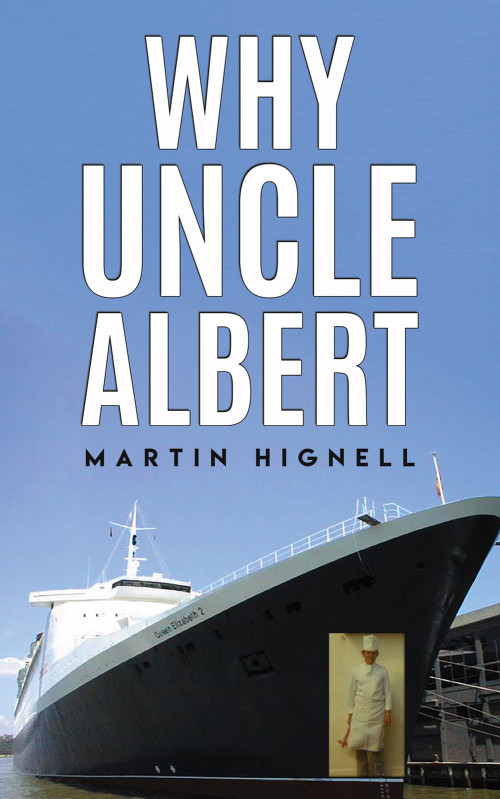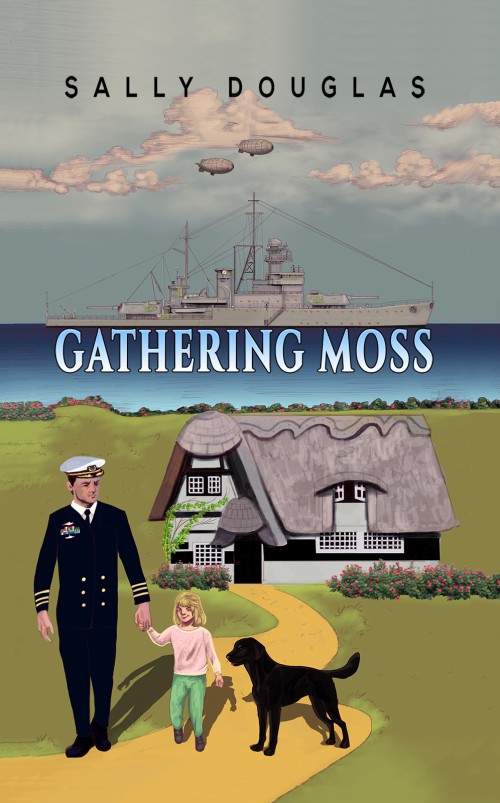A daughter's warm and engaging account of her father's experience in World War Two as a soldier in the Army's famed 10th Mountain Division in Italy, this book isn't about front-line combat. Rather, it's about Lawrence Prudhomme as a husband, father and participant in the vast logistical effort required to defeat Nazi Germany - he drove a two-and-a half-ton truck in miserable conditions in the mountains of northern Italy in the closing months of the war. Like so many others, he endured years of separation from his family - his wife and infant daughter - as well as countless other privations, but he did his job, and he formed part of the backbone of a national effort the likes of which we may never see again.
The author and her brother had to good fortune to discover their father's wartime correspondence, and it was a treasure trove. Much of the text comes straight out of the letters (unfortunately, but not surprisingly given the life of a soldier, his wife's correspondence to him did not survive) and despite the fact that these are the product of a distinct individual, it's hard not to imagine echoes of the experiences, and reactions, of our own parents and grandparents who served in the war, as well as their family members who had to do without them for long periods, and in some sad cases forever. Although Mr. Prudhomme certainly comes across as a flesh-and-blood individual, his comments and reactions are often, it seems to me, representative of what so many others experienced, as was his reluctance to discuss his wartime experiences with his children.
A bit of icing on the cake was the author's meeting in Italy with a family that Mr. Prudhomme befriended during the war - not only did they fete Ms. Donaldson-Evans and her husband Lance but they also expressed continuing gratitude for what Mr. Prudhomme and his fellow American soldiers did to liberate their country. More than "a bit of icing", actually - a display of generosity that we would do well to remember, as we should the sacrifice of Mr. Prudhomme and his family.
A great read - highly recommended!
It is not unusual, as one grows older, to come to feel that one understands one’s parents better. Even after they have died, our memories of them collide with our own expanding life experience to enrich that understanding. Occasionally there is new input, In the form of memories shared with us by others. But how wonderful, how fascinating, when it is our long-deceased parents themselves who return to reveal more of their lives to us – as happened when Mary Donaldson-Evans and her brother Chuck Prudhomme discovered a cache of letters exchanged by their parents during their dad’s military service, including deployment in Italy, during World War II.
Little Mary was not yet nine months old when her father was drafted into the Army in 1943, and many of the letters dwell on how much her father missed his adorable baby girl. Delightful reading for now seventy-plus Mary! (Chuck, a baby boomer, misses out on the epistolary oohing and aahing.) Lawrence and Lillian Prudhomme were young marrieds in Minnesota, distressed at being separated. Lillian, a nurse, found a hospital position in a town close to Fort Sill, where Lawrence was stationed for several months, and she went there to be near her husband, leaving Mary in the care of grandparents who oversaw baby’s first Christmas and first birthday. At this, the author expresses less delight but nevertheless frames the absence as well as occasional other seemingly less-than-ideal childrearing practices in the context of the time. More often than not, however, the wartime letters reveal a Lillian less cold and a Lawrence less strict (or angry) than their children sometimes found them in subsequent years.
Donaldson-Evans’s analytical expertise as a literary scholar and her creativity as a short story writer is put to good use in this non-fiction biographical work. She skillfully presents anecdotes from the letters to reveal her parents’ characters in an unflinching, but always compassionate, manner. She sets the scene by evoking living conditions of the time, including prevalent “bad habits” such as smoking, unprotected exposure to the sun (even for babies!), and over-indulgence in candy and chewing gum. (Well, let’s face it, those of us raised in the 50s were still exposed to these, to some degree!) She notes that her father’s smoking, sunbathing, and candy-eating in the army wrought havoc on his health lifelong, beginning with the severe toothache he reported suffering on the troopship that carried him to Europe. Nevertheless, her dad’s sharing of chocolate bars with the children of an Italian family who “adopted” him in Cividale, Italy, is emblematic of a far deeper connection he formed with them, and her mother’s pursuit of a nursing position near Fort Sill is evidence not only of her love for her husband but of her ambitious, ahead-of-her-time dedication to her profession, as confirmed by her subsequent career.
The chapter “Keeping the Faith” provides a retrospective on the practice of Catholic believers in the 1940s, and of biases among Catholics of different nationalities, as well as between Catholics and Protestants. Lawrence, devout in his Catholic practice, was nevertheless ahead of his time, however cautiously, in marrying a Protestant. Lillian, who converted to Catholicism when she married, receives frequent encouragement from Lawrence to practice her new faith, and assurance of the efficacy of her prayers for him (such as the novena she recited for him as he crossed the Atlantic). During his time in Italy, Lawrence attended mass regularly and visited the Vatican to receive the Pope’s blessing.
It is ethnocentrism, rather than religious orthodoxy, that is challenged by Lawrence’s military experience. He had not been immune to ethnic prejudices, as witnessed by his letters to Lillian from Fort Sill, but in Italy this changed, serving as a poignant reminder that while life is often lived behind the lines drawn by our prejudices, at times we somehow free ourselves and venture beyond those lines. Lawrence’s respect for his comrades-in-arms, of whatever ethnicity, in the support troops of the 10th Mountain Division to which he is finally, proudly, assigned (and whose impressive history is traced in chapter 9 of this book); his eventual encounter with defeated and discouraged German soldiers, “human like us”; but most especially his friendship and increasing closeness to the Schirattis, an Italian family in Cividale whose daughters reminded him of his own Mary, led him to question his old biases.
Behind the lines of his letters (oh, that apt book title!), Lawrence’s children are now able to discern the significance of their dad’s wartime experience, even though he did not often discuss it with them. During a 2017 tour in Italy organized for 10th Mountain Division veterans and their families, Mary and her husband Lance participated in a solemn celebration of the extraordinary dedication and dignity of that unit, honored to this day not only by the U.S. military but by Italians in the region who remember the feats of the Mountain Division that led to liberation. Furthermore, Lance located the Schirattis, and a joyful meeting with them confirmed how dearly Lawrence was remembered by the family. The wonderful connection was re-established and, through FaceTime and WhatsApp, it continues today, a precious, enduring miracle.
This book reverses the “normal” order of things: instead of a child/young person relating to her parents, the now older author meets and relates to her much younger dad and mom. This gives her an advantage, but she wields it gently. Sometimes she teasingly pokes fun, sometimes she views with a more critical eye, but she clearly prizes and steadfastly honors the gift the letters have brought her. Her portrait of her father behind the lines, day-to-day and down-to-earth, offers us new insight into how the “greatest generation” lived, what they were made of, and where their legacy can lead us.
A WWII Soldier's & his Family's Wartime Experiences Reincarnated 70 Years Later Through His Letters
"Behind the Lines" is a poignant, clever, humorous, sensitive, illuminating, honest, beautifully written account of how WWII affected a young soldier and his family, as gleaned from his years of descriptive letters to his wife, read some 70 years later by his daughter, who clearly shares her father's love of, and talent for, writing. It is an easy, compelling read, and becomes more and more engrossing the further along with one read. After reading it, I felt that, for the first time in my life, I fully appreciated the wartime experiences of my own father, a still-living WWII veteran who served as an airplane mechanic, and how his service for his country during WWII impacted the rest of his life. This book has universal appeal. Don't miss out on the opportunity to experience this book, you will be grateful you did!












